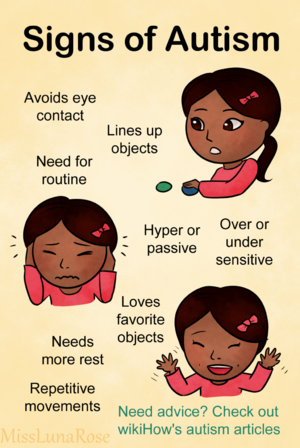Helping Youngsters With Autism Understand And Reveal Feelings
As research into autism continues to progress, so also does our understanding of autistic habits. New insights are constantly emerging, testing old presumptions and opening new opportunities for assistance and treatment. It's an interesting time in the area of autism research, with prospective innovations coming up in locations like sensory handling, interaction assistance, and grown-up end results. Advertising acceptance and understanding in society is perhaps one of the most crucial action in sustaining individuals with autism.
At What Age Do Youngsters Show Signs Of Autism?
Social relationships and interactions can be particularly challenging for people with ASD. Making and preserving friendships, navigating romantic connections, or perhaps taking part in little talk can seem like browsing a minefield. Yet with understanding and assistance, many people with ASD establish purposeful links and connections. One more misconception concerning behavior is that it becomes part of a youngster's individuality and medical diagnosis, and therefore can't be transformed.
Early Signs Of Asd
- Age at first developmental analysis was restricted to children with information on the earliest accumulated or traditionally reported examination (consisting of records of previous ASD-related medical diagnoses) offered.This consideration substantially boosts their sense of autonomy, permitting kids to flourish within a structured yet helpful environment.Autism, also called Autism Spectrum Condition (ASD), is a long-lasting condition typically showing up throughout very early childhood.The age at which children had their latest test or supervisor impact of cognitive capacity differed by website.On the various other hand, no capable guardian would certainly make it easy and appropriate for their child to exist, hit, harm others' sensations, or act in ways that are damaging to themselves or others.The spectrum in ASD describes the vast array of signs and symptoms and actions that can vary in intensity from person to person.
Understanding the underlying factors for tough habits is crucial. Factors like sensory sensitivities or changes in regimen can activate difficulties. Implementing constant actions without psychological responses is necessary; keeping a tranquil attitude motivates stability. Trouble habits in children with autism often arise when they are overstimulated by their senses, making it hard for them to control their activities. Any type of unintended or unannounced social event can cause your youngster with autism to display issue habits. Helping your kid get over problem actions may seem daunting, specifically if they display a number of difficult behaviors you 'd like to alter.
Building up social skills with practice can assist enhance participation in the community and assistance results like joy and relationships. We have compiled social skills pointers and information from specialists, educators, and households, together with beneficial devices to aid enhance chances to be part of the community. Taking these steps might make it easier to obtain info, support in the therapy planning process, and take actions to keep your child secure in case of a mental health dilemma or psychiatric a hospital stay. This table summarizes efficient behavior intervention strategies and their unique purposes, highlighting the varied strategies customized to private demands. Incorporating a youngster's staminas and interests into their BIP not only enhances involvement yet can likewise lead to a more favorable behavior outcome. When the factors for the behaviors are clear, select evidence-based interventions that reverberate with the kid's discovering degree and passions.
Instance Ascertainment And Monitoring Instance Definition
A neurotypical 12-year-old ought to be able to graciously thank a grandparent for a present they do not really want. Autistic youngsters usually appear premature for their age; an autistic young adult may behave like a much younger youngster. Difficulties with social communication can make it hard for an autistic kid to tell when their activities may be painful. Hereditary elements play a significant role in ASD, with research recommending that autism can run in families. Nonetheless, it's not as straightforward as a single "autism genetics." Rather, it's likely that several genetics engage in complex ways to boost the chance of ASD. In early childhood (0-5 years), parents might see their youngster does not respond to their name, prevents eye contact, or shows little rate of interest in playing with others. These very early signs can be refined, like pieces of a challenge that do not quite fit together yet. PlanningIt can assist to plan for scenarios that are testing for your kid.
